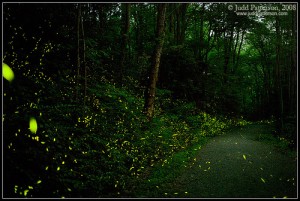Soccer balls litter the yard, my wife is auditioning for NASCAR on the lawn mower and I am following the tiller through a soft, loamy sea of rich smelling earth in the garden. In the evening, fireflies are dancing in the dark outside our windows like some kind of organic neon sign flashing SUMMER TIME – SUMMER TIME – SUMMER TIME. Bathing suits are all folded with care, stuffed in the pool bag – knowing a ‘swim date” soon will be there.
In the Old South, we would become more crepuscular in the summer. The heavy lifting would be reserved for early morning and late afternoon. Routine chores, maintenance and preparations would be undertaken under the fiery glare of the midday sun, often on some kind of crude table under the shade of a giant water oak with a glass of southern iced tea – you know the kind with enough sugar to leave a residue on the bottom of the glass – just an arm’s length away.
I remember a summer job I had during college – checking cotton. We would hike through endless oceans of cotton, pulling the “squares” to check for boll weevils. We would record the percentage of weevils we found so the farmer could determine if it was time to call in the crop dusters. Every afternoon we would watch the thunderheads gather and try to keep track of their direction. We usually had enough fields to check that we could avoid the heavier downpours and keep working. Often, at dusk, as we headed home across those green seas of cotton, heat lighting would light up the distant sky with surreal blue-green flashes.
I remember scents too. It would start in spring with jasmine. Then it would gradually grow into a sweet, sticky blend of Japanese honeysuckle and wisteria.
And no down home southern summer would be complete without the roar of cicadas. Cicadas were so common that you didn’t hear them until they quit – then the silence would be startling. These were annual cicadas – not periodic – so they were there every year. Another common sound was the “rain crow.” Rain crow was the colloquial name for the yellow-billed cuckoo. It was given this name because of its propensity for calling on cloudy days or especially before rain events.
Annual cicadas are not too common here at higher elevations but I encounter them occasionally at lower elevations. I recently heard some periodic (13-year) cicadas near Hot Springs. I understand there is a brood of 13-year cicadas hatching in some spots across Western North Carolina this year but they’re not nearly as widespread as that emergence of 17-year cicadas we had a couple of years ago.
The periodic cicada is certainly loud and during a pronounced emergence they can be deafening. But their call is an otherworldly ebbing and flowing “whirrrrrrrrrrrrrr – uuuurrrrrrrrrrrr” not the buzzy drone of the annual cicada.
Rain crows I have. And every summer I look forward to hearing their muted “crow” when those storm clouds start to gather.
I guess it’s because the days are so long, but we often think of summer as a long drawn out affair. But, trust me, those luminescent explosions
will disappear from the night sky before you’re ready and katydids will be calling to alert you to the approach of autumn. So don’t delay – get out and sweat some!

